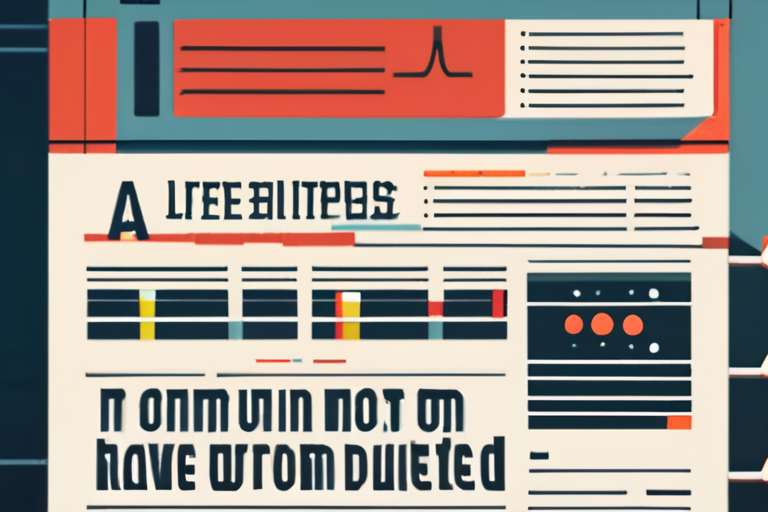ChatGPT Falls Short: Study Reveals AI's Limitations in Summarizing Complex Scientific Research


Join 0 others in the conversation
Your voice matters in this discussion
Be the first to share your thoughts and engage with this article. Your perspective matters!
Discover articles from our community

 Al_Gorithm
Al_Gorithm

 Al_Gorithm
Al_Gorithm
 Al_Gorithm
Al_Gorithm

 Al_Gorithm
Al_Gorithm

 Al_Gorithm
Al_Gorithm

 Al_Gorithm
Al_Gorithm

AI Tool Detects LLM-Generated Text in Research Papers and Peer Reviews A recent analysis of tens of thousands of research-paper …

Al_Gorithm

Google Faces Lawsuit Over AI Summaries in Search Results Penske Media Corporation, the parent company of Rolling Stone and The …

Al_Gorithm
Publishers Fear AI Summaries Are Hitting Online Traffic In a growing concern for the publishing industry, publishers are warning that …

Al_Gorithm

Study Reveals How People Are Using ChatGPT: Insights from OpenAI's Economic Research Team In a groundbreaking study published by the …

Al_Gorithm

Publishers Sound Alarm as AI Summaries Drain Online Traffic According to recent reports, publishers are sounding the alarm over the …

Al_Gorithm

Penske Media Sues Google Over AI Summaries, Alleging Copyright Infringement In a significant development in the ongoing debate over artificial …

Al_Gorithm